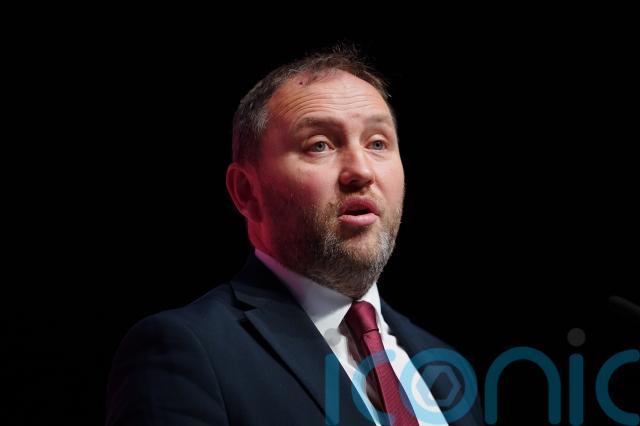
The UK and Scottish governments are failing to use their powers to reduce poverty, a report by a leading charity has found, as rates of extreme deprivation rise.
The Joseph Rowntree Foundation (JRF) said a lack of action at Holyrood and Westminster is keeping more than one million people in Scotland in poverty – including about 240,000 children.
The charity said the Scottish Parliament will “almost certainly miss” its interim child poverty reduction targets.
Its report found the proportion living in “very deep poverty” – measured as those earning below 40% of the median income – has surged to 40% of all families in Scotland, up from 26% in the mid-1990s.
The JRF said families are being “locked into poverty” by a “failing” social security system.
It urged the new UK Government, which it says retains most of the spending and social security powers in Scotland, to reverse the “policy failings” of the previous administration.
Chris Birt, associate director of the Joseph Rowntree Foundation in Scotland, said: “Our report shows that a new consensus is needed to tackle stubborn rates of hardship.
“The law describes social security as an ‘investment in the people of Scotland’, but people struggling to get by are being short-changed by a lack of political courage. Poverty comes down when social security is enhanced.
“The new UK Government provides a key opportunity for politicians in both of Scotland’s governments to seize their powers, and responsibilities, to deliver compassionate support for people in Scotland.
“Far too many people experience daily struggles to get by and deserve better than platitudes about waiting for growth or tough decisions.
“People all over Scotland have tougher lives than our wealthy nation should tolerate – it is high time that changed.”

The authors of the JRF report found the basic rate of Universal Credit has fallen in real terms and is well below the poverty line.
The charity said that meant the standard living allowance for a non-working person was 64% below the poverty line, and 75% below it for under-25s.
It said the “work first approach” adopted by the last government had failed to reduce poverty.
The researchers found 95% of lone parents rely on benefits as part of their income, as well as 83% of those with three or more children and 62% of families where someone has a disability.
The JRF said the two-child benefit cap contributed to a high rate of poverty among families with three or more children.
The report also found that despite 54% of families from a minority ethnic background experiencing poverty, only 38% of receive social security.

Children and working-age adults in households where someone has a disability are more than three times more likely to be in poverty and go without essentials such as a warm home or winter coat.
Scottish Secretary Ian Murray, who will speak at the launch of the report on Monday, said: “Too many children in Scotland and across the UK are growing up in poverty. This is unacceptable, and that’s why the UK Government has set up the Child Poverty Taskforce.
“Our ambitious strategy will use all available levers to address the problems we face through work, housing, education, heath, childcare and the social security system.
“As part of this, we’re resetting our relationship with the Scottish Government and engaging with them on our shared goal: to ensure that every child in Scotland has the opportunity they deserve without poverty damaging their future prospects.
“Taking action to reduce poverty is absolutely central to our mission to drive economic growth. We’re making work pay, ensuring the national minimum wage is a true living wage, planning Jobcentre reform, and ending exploitative zero-hours contracts so workers have increased job security.
“At next week’s International Investment Summit, we will forge stronger links with our global business partners working together to achieve the growth that’s vital to raise living standards.”
Social Justice Secretary Shirley-Anne Somerville said: “Ending child poverty is a national mission, and we are continuing to do everything in the scope of our powers and limited budget to tackle and reduce poverty.
“We have allocated £3 billion a year since 2022-23 to polices which tackle poverty and the ongoing cost of living crisis. This includes providing free bus travel for around 2 million people, free school meals for all children in primaries 1-5, and social security benefits and payments which are only available in Scotland.
“Modelling published this week by the Institute for Fiscal Studies suggests that UK Government investment in social security could bring hundreds of thousands of children out of poverty across the UK.
“The Scottish Government stands ready to work with the UK government however this must be matched with action in the budget this month.
“That includes immediately abolishing the two-child limit, delivering progress toward an Essentials Guarantee and following this government’s lead by matching the Scottish Child Payment.
“Modelling published in February estimated Scottish Government policies will keep 100,000 children out of relative poverty this year, with the Scottish Child Payment alone keeping 60,000 children out of poverty.”
Subscribe or register today to discover more from DonegalLive.ie
Buy the e-paper of the Donegal Democrat, Donegal People's Press, Donegal Post and Inish Times here for instant access to Donegal's premier news titles.
Keep up with the latest news from Donegal with our daily newsletter featuring the most important stories of the day delivered to your inbox every evening at 5pm.